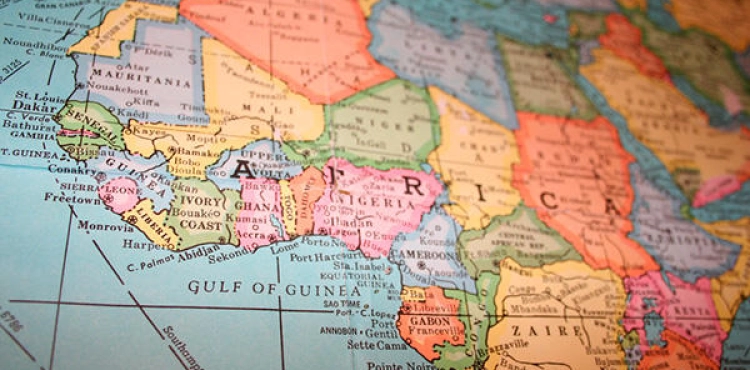Africa is on the world map of extreme poverty in severe red, an expression that threatens to worsen as population grows in the coming decades.
Although the International Monetary Fund and the World Bank have been active since their founding 75 years ago to combat this long-standing scourge on the African continent, the results of their work remain mixed.
The two international financial institutions are facing the need for heavy investment in Africa´s infrastructure and creation of jobs to address its population boom, while addressing the risks of climate change in a region that is unable to afford it.
"The problems are particularly evident in Africa," World Bank President David Malbas said in an interview with AFP.
According to the latest World Bank data, extreme poverty, which is determined by the number of people living no more than $ 1.90 a day, has declined significantly worldwide, falling to 10% in 2015 from about 30% in 1990.
But it is still rising in sub-Saharan Africa, where more than half of the population was in absolute poverty four years ago.
By 2030, this region will shelter about 90% of people living in extreme poverty in the world, while the continent´s population is expected to increase by 1.3 billion people, more than half the world´s population .
The International Monetary Fund (IMF) forecasts 2019 GDP growth of 3.5 percent in Africa, compared to 3 percent in 2018. But in April, the IMF warned that economic expansion in recent years was not enough to create the 20 million jobs needed each year to accommodate expatriates New to the labor market.
The African Development Bank (AfDB) figures show that Africa´s working-age population will increase from 705 million in 2018 to about 1 billion by 2030.
Since taking office in April, David Malpas has stressed the need to combat poverty. In a symbolic move, he chose to visit Madagascar, Ethiopia and Mozambique.
He commented on the figures that 700 million people still live in extreme poverty, saying they are "700 million people too much."
After explicitly criticizing the World Bank while still an assistant to the Treasury secretary in the administration of President Donald Trump, he set a goal for his work at the head of the financial institution to improve its effectiveness.
In the course of his approach to African countries, which suffer from huge debts inherited from past mistakes, Malpas intends to promote "good policies", stressing that it is a "key factor" to attract private investment.
Masood Ahmed, who has worked for a long time at the International Monetary Fund and the World Bank, says that making development in Africa more difficult is vulnerable to the consequences of climate change.
"Over the next 20 years, the global economy will be twice as large as it is today, and it will be necessary to double the infrastructure we need to support this economy," he told AFP.
But the implementation of projects for this goal must be accompanied by a reduction of greenhouse gas emissions by one third.
In this context, Malpas calls for a special approach for each State that better responds to the problems inherent to each individual economy. It specifically recommends the removal of the State monopoly and the adoption of a strong legal framework that would allow for the establishment of institutions and the acquisition of the necessary competencies for new posts.
For its part, the IMF calls on African countries to continue to establish a free trade zone on the African continent. So far, 20 countries have signed an agreement to stimulate exchanges and thus stimulate growth.
The IMF said in the spring that "this new entity could change the situation on the continent," which has a market size of 1.2 billion people and total gross domestic product $ 2500 billion.
But the optimism of financial institutions often collides with the return of armed conflicts that have hit one third of the continent´s countries in recent years.
After the violence receded in the past decade, the number of conflicts has risen since 2010 and reached the peak of 2016 with 17 countries.
According to IMF estimates, these conflicts will cause a loss of three percentage points of GDP in the countries in which they are located.
Insecurity prompts the population to flee. Sub-Saharan Africa alone, in 2017, has a record 18 million people and refugees, compared with five million in the 1980s, according to figures from the United Nations High Commissioner for Refugees (UNHCR).












